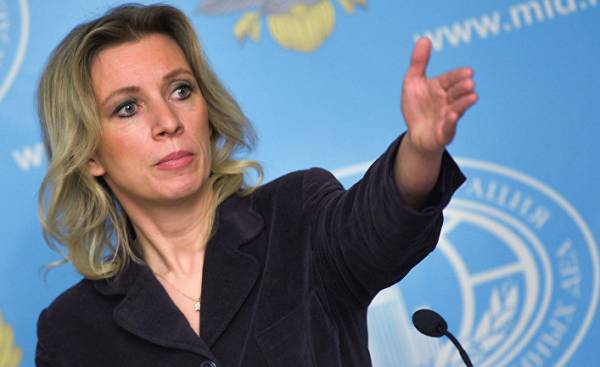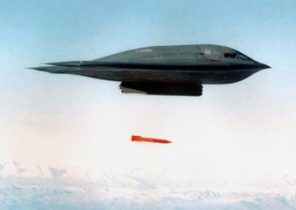
Now the United States and Russia share a lot, and the list, it seems, with each passing day becomes longer: Ukraine, Iran, Syria, North Korea.
But there is something in what the US and Russia become closer. This is how Russian officials are verbal sparring. For this, they use the language of American politics.
Take, for example, “fake news”, an expression that appears regularly in the speeches of Russian officials denouncing and condemning messages to American and European media. In the Russian language there are many ways to Express the concept of “fake” (false, fake, fake, duck) depending on what you’re saying is about deception, fraud, forgery or false rumor.
But none of these words fully reflects the modern phenomenon in the industry of fictional sites, tweets and other messages on social networks that someone created and distributed by bots, says Michelle Beaudry (Michele Berdy), a leading column on the Russian language edition of the Moscow Times.
“In the Russian language there was no word with this meaning, so the reporters began to call it “fake”,” says birdie. Now it was picked up by Russian officials, and “trying to claim and give it the new meaning of “false news about Russia distributed by our enemies within the country and abroad””.
Igor Bagayev, a leading blog in which he keeps track of the Americanisms in the Russian language, says he recently borrowed and assimilated words in Russian come from “the West-oriented” people who know English, read the English media and begin to use these terms often and everywhere.
“I think that the General population have no idea what those words mean” — he added.
But that doesn’t mean that they are the words not the face. The words “mainstream” and “news makers” is often heard in political talk shows that dominate daytime and evening TV programs.
In one of the shows was a discussion about how the American “mainstream” media are angry at Russia and thus trying to discredit the President of the trump. As a result, the viewer will understand that this term applies to hostile popular TV channels like CNN.
As soon as Russia further and further away from the liberal westernized society that some of its leaders had painted in his imagination after the collapse of the Soviet Union, the Americanisms are often used to emphasize this alienation. In Russian the official language for embedded expressions of the modern socio-political jargon.
“Attempts to accuse Russia that have been and continue to be made to the American political establishment, hypocritical,” — said in a recent statement Maria Zakharova, a spokesman for the Ministry of foreign Affairs of Russia. She used the phrase “political establishment” is a favorite dismissive (according to Russian officials) expression in Russian language used to address people in the ruling circles of the USA who oppose the rapprochement between Russia and the United States.
It is not that the Russian language has no appropriate expression. You can also say “ruling circles”, but it sounds not so bitingly, when talking about the United States.
And this is just one of the reasons for penetration of these expressions in Russian language.
Pay attention to the reaction Zakharova to the report, which claimed that Russia knew in advance about the fatal chemical attack on the fourth of April, which, according to US officials, was carried out by aircraft of Syrian President Bashar al-Assad. It is based, as she said, “fake information”. Perhaps she was right, because the Secretary of state Rex Tillerson later acknowledged that evidence of the involvement of Russia, Washington has no.
And then there’s “political correctness” — a concept which, according to Bagaeva, many Russians believe that appears from the outside.
In the Russian language (as in English) there are words with the meaning “correct”, “suitable”, “acceptable”, “polite” and so on. But the hidden meaning of the phrase “political correctness” (which is used when out of control out of caution, thoroughness and selectivity in the use of language, the inherent tolerance and to let go and were intended to exclude the attaching of social and ethnic labels) entered the Russian language through this borrowed phrase.
Last fall Russian Prime Minister Dmitry Medvedev whether in jest, whether seriously said that in these difficult times for Russian-American relations order “us” (the so-called Russian coffee in a large Cup — not without espresso and foamed milk) “politically incorrect”. The result was the word “Russian”, however, long it did not last. Perhaps the popularity of the us government in Russia and the lowest since the end of the cold war, but Russian love coffee “Americano”.
All languages borrow words from other languages — the Americans have among these words select “agitprop”, “satellite”, “grandma” or “astronaut”. Russian as the dominant language in the country, located on major trade routes (the country that was expanding, was an Empire that conquered, and which, after the collapse of the Soviet Union took the world of capitalism), especially open to foreign expressions.
Sometimes loanwords give an unwanted result. One of them (which likes to use Medvedev) — “gadgets” — some Russians do not understand how the word for smartphones, tablets and the like, but as a “bastard you”.
I guess it would be appropriate to say, referring to someone who is loudly talking on their gadgets in a crowded theater.
Some foreign words survive because they are simply easier. Why say “electronic computing machine”, if you can just say “computer”?
What about such words as “primaries”, “downshifting”, “second-hand” and “message”? The Russian language has a wonderful word for it all. Why borrow foreign?
Medvedev, probably, could answer this question, using another of his favorite words: “This is now the trend.”







